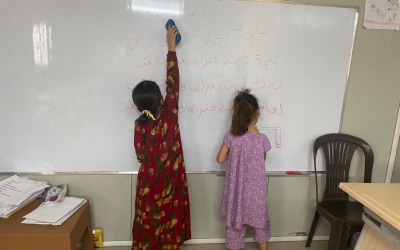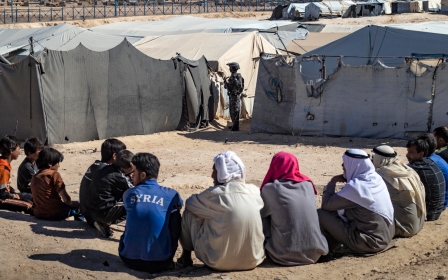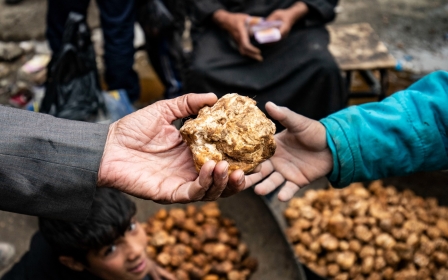Syria's Kurds to put suspected IS fighters on trial

The Kurdish-led administration in northeast Syria said on Sunday that it would start the process of trying thousands of suspected foreign Islamic State (IS) fighters after years of holding them without charge.
The announcement caught international diplomats by surprise, but the Kurdish-led administration cited the refusal by the international community to take back their own citizens and try them in their respective countries as a reason for the move.
The US-backed Kurdish administration, which operates outside the control of the central government in Damascus, holds up to 10,000 suspected IS detainees and their families.
The fighters are kept in detention facilities while the families, including children, are kept in camps.
In a statement the Kurdish administration said that it would submit detainees to its own "open, free and transparent trials".
Stay informed with MEE's newsletters
Sign up to get the latest alerts, insights and analysis, starting with Turkey Unpacked
"Since the first days following the battle of Baghouz, the Autonomous Administration called on the international community to fulfil its duties regarding finding a solution for the captured ISIS militants," read the statement. It added that they have previously proposed initiatives to establish an international court.
"The failure to bring those militants in front of a court is against international laws and conventions."
Senior administration official Badran Jia Kurd said that rights groups and the US-led coalition, which helped Kurdish-led forces oust IS from swathes of northern Syrian territory, would be invited to attend the trials.
The matter of foreign fighters is a contentious issue that states have found challenging to deal with. Many countries are reluctant to repatriate their nationals fearing political backlash, in addition to concerns that their counter-terrorism laws would not guarantee long-term prison sentences.
"No one thought they were going to do this. We take it very seriously that they are holding a lot of people, but this is a separate issue from trying them. Trying them is a whole different beast," a western diplomat told Reuters.
There are also questions about the legal basis of these trials and whether they could be held without the consent of Damascus.
The trials would require very heavy security. In the past, IS fighters have probed for weakness in order to free fellow fighters.
In January last year, IS fighters rammed two explosives-packed vehicles into a detention facility resulting in several hundred fighters escaping.
Approximately 10,000 men and hundreds of adolescent boys are being held in 14 overcrowded prisons in Syria's northeastern Hasakah region.
Women and children live in two camps, al-Roj and al-Hol, which are home to around 60,000 people, including about 20,000 from Syria, 31,000 from Iraq and up to 12,000 from other countries.
Many of them have been in captivity since 2019, when Kurdish-led forces defeated IS and took control of Syrian territory previously held by the armed group.
US General Michael Kurilla, head of US Central Command, visited the camps in March and called for the "repatriation, rehabilitation and reintegration of the camp residents back into their countries and communities of origin".
Middle East Eye delivers independent and unrivalled coverage and analysis of the Middle East, North Africa and beyond. To learn more about republishing this content and the associated fees, please fill out this form. More about MEE can be found here.





